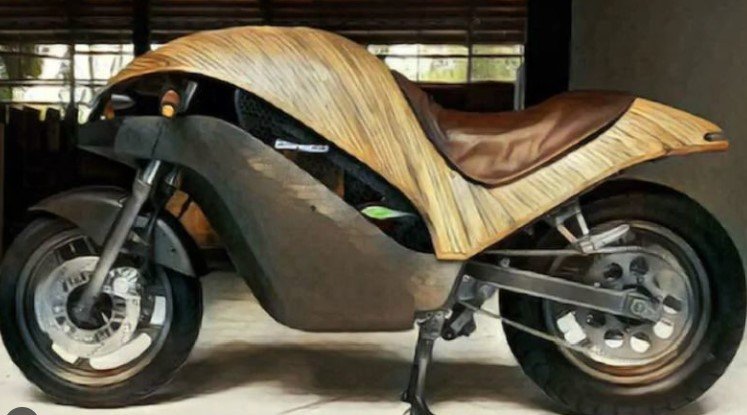How Vendors Promote Eco-Friendly Motorcycling Solutions
Vendors are increasingly focusing on promoting eco-friendly motorcycling solutions. As environmental concerns rise, many motorcycle brands are working to reduce their carbon footprint and improve sustainability. This shift not only aligns with global efforts to combat climate change but also meets the growing demand for greener transportation options. In this post, we’ll explore how motorcycle vendors are making strides in offering eco-friendly solutions and what this means for riders.

1. The Growing Demand for Eco-Friendly Motorcycles
The demand for eco-friendly motorcycles has grown significantly in recent years. More riders are becoming aware of the environmental impact of their bikes, pushing manufacturers to innovate. Electric motorcycles have been at the forefront of this movement. These bikes eliminate the need for gasoline, reducing air pollution and greenhouse gas emissions. Vendors are embracing this trend by introducing electric models that offer high performance and minimal environmental impact.
Electric motorcycles are designed to deliver similar power and speed as traditional gas-powered bikes, making them an attractive alternative. In addition to electric models, many vendors are also exploring ways to improve fuel efficiency in their gasoline-powered motorcycles. This can help reduce emissions and lower fuel consumption, making motorcycling more sustainable.
2. Sustainable Materials in Motorcycle Production
Another way vendors are promoting eco-friendly motorcycling solutions is by incorporating sustainable materials into the production of motorcycles and parts. Manufacturers are moving away from traditional materials like plastic and opting for recycled or biodegradable alternatives. For example, some motorcycle manufacturers are using aluminum and carbon fiber, which are lightweight and recyclable, helping to reduce the overall environmental impact of the bike.
In addition to the materials used in the bike itself, vendors are also focusing on sustainable manufacturing practices. Some companies are adopting green production methods, such as using renewable energy in their factories or minimizing waste during production. These efforts help reduce the environmental impact of manufacturing motorcycles, making the entire process more eco-friendly.
3. Eco-Friendly Motorcycle Accessories
Vendors are also promoting eco-friendly solutions through motorcycle accessories. Many companies now offer accessories made from sustainable materials, such as helmets made from recycled plastics or clothing made from organic fabrics. These accessories are designed to be durable and functional while having a minimal impact on the environment.
Additionally, some vendors are promoting products that help riders reduce their carbon footprint even further. For example, eco-friendly lubricants, fuel additives, and tires designed for better fuel efficiency are becoming increasingly popular. By offering these accessories, vendors are helping riders make environmentally-conscious decisions without compromising on performance or style.
4. Partnering with Environmental Initiatives
To further promote eco-friendly motorcycling solutions, many vendors are partnering with environmental organizations and initiatives. These partnerships allow motorcycle brands to invest in sustainable projects, such as planting trees or supporting renewable energy projects. By joining forces with environmental groups, vendors are demonstrating their commitment to sustainability and creating a positive impact on the environment.
In some cases, vendors are also offering incentives to customers who make eco-friendly choices. For example, some brands offer discounts or trade-in programs for customers who switch from gasoline-powered motorcycles to electric models. These initiatives encourage riders to adopt greener options while supporting the overall goal of reducing the environmental impact of motorcycling.
5. Educating Riders on Sustainable Practices
Vendors are not just offering eco-friendly products; they are also focused on educating riders about sustainable practices. Many motorcycle companies are hosting events, workshops, and campaigns to raise awareness about the environmental benefits of eco-friendly motorcycling. These initiatives provide valuable information on how to maintain motorcycles for optimal fuel efficiency, reduce emissions, and make environmentally-conscious decisions when it comes to riding.
Riders are also being encouraged to adopt eco-friendly habits, such as reducing unnecessary idling, riding at a steady pace, and maintaining their bikes properly. These small actions can help reduce a rider’s environmental footprint, making motorcycling a more sustainable activity overall.
Conclusion
Vendors are playing a key role in promoting eco-friendly motorcycling solutions by offering electric motorcycles, using sustainable materials, and providing eco-friendly accessories. Additionally, their partnerships with environmental initiatives and efforts to educate riders contribute to the broader goal of sustainability in the motorcycle industry. As more riders embrace these solutions, eco-friendly motorcycling will continue to grow, making it possible to enjoy the thrill of riding while also protecting the planet.



